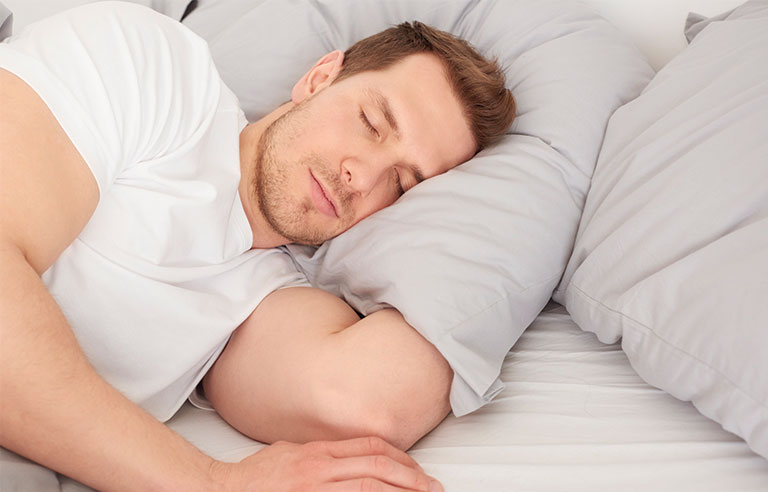4 Ways To Improve Your Sleep
“O sleep, O gentle sleep, Nature’s soft nurse, how have I frightened thee,
That thou no more will weigh my eyelids down, And steep my senses in forgetfulness?”
― William Shakespeare, Henry IV, Part 2
Many a poet has written about sleepless nights. In our hustle-and-bustle lifestyles, it has become almost normal to sleep fitfully. It is estimated that 50 to 70 million Americans chronically suffer from sleep disorders.
Lack of sleep has some pretty disruptive consequences to a healthy lifestyle. Sleeping less than 7 hours per night may have wide-ranging effects on the cardiovascular, endocrine, immune, and nervous systems, including the following: obesity in adults and children, diabetes and impaired glucose tolerance, cardiovascular disease and hypertension, anxiety symptoms, depressed mood, alcohol use (Source).
Insomnia symptoms can include:
- Difficulty falling asleep despite being tired
- Trouble getting back to sleep when waking up in the night
- Waking up too early in the morning
- Relying on sleeping pills or alcohol to fall asleep
- Not feeling refreshed after sleep
- Daytime drowsiness, fatigue, or irritability
- Difficulty concentrating during the day
Here are some things you can do to help promote a good night’s rest:
1. Adjust Your Caffeine Habits
If you suffer from insomnia, caffeine is not your friend. Here’s why: caffeine has a half-life of about 6 hours. (A half-life is the period of time required for the concentration or amount of drug in the body to be reduced by one-half.) This means that if you drink a cup of coffee at 8:00 am, you still have half of those caffeine levels in your body at 2:00 pm, and by 8:00 pm you still have 25% of the original amount circulating around in your body. Now, imagine how much caffeine you have in your body at bedtime if you’re drinking cup after cup throughout the day — quite a bit!
Why does this matter? Any caffeine in your system makes it more difficult to fall asleep, and once you do manage to fall asleep, it affects your quality of sleep. Specifically, caffeine disrupts REM sleep, which plays a key role in learning and memory.
If you are going to drink caffeine, try consuming a smaller total amount, and give yourself a cut-off time, ideally before noon. Also remember, chocolate contains caffeine… so try to refrain from eating it after your cut-off time! Consuming caffeine-containing foods and drinks throughout the day can be a tough habit to break, but doing so could greatly improve your quality of sleep and quality of life.
2. Exercise
A regular exercise routine has many health benefits, not the least of which is better sleep!
According to The National Sleep Foundation’s 2013 “Sleep in America” poll, 83% of people who exercised at any time of the day reported sleeping better than those who didn’t exercise at all. (Source)
Another clinical research study showed that participants who exercised (anywhere from 20 to 40 minutes, 4 times per week) reported improved sleep quality, shifting them from poor sleepers to good sleepers. They also had fewer symptoms of depression, less daytime sleepiness, and more overall vitality. (Source)
Do keep in mind that some people report that exercising prior to trying to fall asleep can make it more difficult to fall asleep. Exercise raises your heart rate and levels of adrenaline, so it is recommended that exercise activities cease at least 2 hours before bedtime if possible, to give your body time to ease back into a restful state.
3. Stop Using Bright Screens Before Bedtime
Yes, this includes that e-reader/iPad/Smart Phone you’re reading on!
Using light-emitting devices before bedtime has an extremely powerful effect on the body’s natural sleep/wake pattern. Specifically, it can supress the release of melatonin — a hormone that regulates the sleep/wake cycle.
In addition to affecting duration of sleep, using bright screens before bedtime can have an effect on the quality of sleep.
The type of light most likely to affect melatonin and sleep duration/quality is in the blue-and-white ranges, which is commonly emitted from today’s tablets, computers, e-readers, and cell phones. If you must use your device before bed, you can download a filter to help remove the blue and white light (such as f.lux), or you can use a pair of amber-colored glasses (such as these ones or these ones).
4. Get Regular Acupuncture Treatments
Acupuncture has long been used successfully in the treatment of insomnia.
A systematic review of randomized controlled trials concluded, “Acupuncture improves sleep quality and increases sleep duration.” (Source)
Those of us practicing this medicine are already well aware of the positive effects of acupuncture on sleep quality and duration. We hear from the majority of our patients that their sleep improves with each acupuncture treatment — even if they are receiving treatment for another ailment!
Call Point of Origin today to make an appointment with one of our talented acupuncturists, and let us help you find the good night’s rest you’ve been searching for.
http://sciblogs.co.nz/sleep-on-it/2011/03/11/caffeine-affects-your-sleep-no-ifs-no-buts/
http://www.helpguide.org/articles/sleep/how-much-sleep-do-you-need.htm
http://www.helpguide.org/articles/sleep/cant-sleep-insomnia-treatment.htm
http://www.webmd.com/sleep-disorders/news/20100917/exercise-helps-you-sleep
http://www.ncbi.nlm.nih.gov/books/NBK19961/
http://www.ncbi.nlm.nih.gov/pmc/articles/PMC3156618/
http://www.scientificamerican.com/article/bright-screens-could-delay-bedtime/
http://chriskresser.com/how-artificial-light-is-wrecking-your-sleep-and-what-to-do-about-it/



No Comments